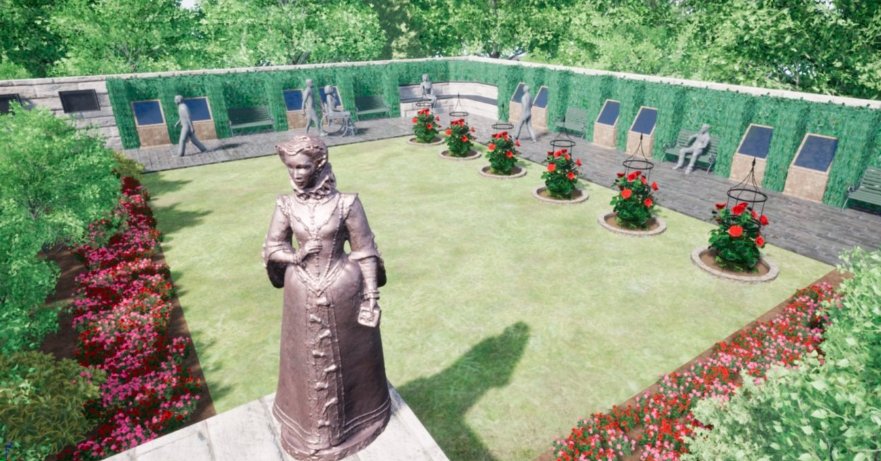A landowner in St Andrews is taking legal action against a Scottish government decision that would force the sale of land to a community group. The landowner argues that the order to sell the land to Poet’s Neuk, a local group planning to transform it into a public garden, is unjustified.
A Landmark Case for Scottish Land Ownership
Forthtay Ltd, the owner of the disputed land in St Andrews, has filed an appeal against the Scottish government’s decision to compel them to sell a piece of land to Poet’s Neuk. The land in question, located at the corner of Greyfriars Garden and St Mary’s Place, has been the center of a growing dispute, with the community group planning to turn it into a public garden dedicated to Mary Queen of Scots.
The decision to force the sale stems from a provision in Scotland’s Land Reform (Scotland) Act 2016. This provision allows community organizations to purchase neglected or abandoned land if it is deemed to be in the “public interest.” This law, updated in 2020, has never been used before in such a high-profile case, making the appeal an essential one for landowners and policymakers alike.
Forthtay Ltd, which was formerly known as Optimus Fiduciaries Ltd, is not content with the Scottish government’s decision. Lawyers for the company argue that the land should remain in their control, particularly since their previous attempts to develop the site had been rejected. The latest attempt, a coffee kiosk built inside a converted horsebox, was blocked by Fife Council following more than 40 objections.

Poet’s Neuk, on the other hand, has received significant backing from local residents and the council. They were granted planning permission in 2018 to transform the land into a public garden, which would include a statue of Queen Mary. The group claims that the land has become a hotspot for anti-social behavior and drug use in recent years, and its transformation into a garden would help combat these issues while benefiting the community.
The Significance of the 2020 Land Reform Law
In 2020, the Scottish government introduced amendments to the 2016 Land Reform Act, providing a path for communities to purchase neglected or abandoned land. Under these changes, communities can petition for the right to buy land that is harming public interest due to its poor condition or underuse. The Scottish government argues that Poet’s Neuk’s plan to create a garden would contribute to sustainable development by providing a space for local residents to connect with one another.
Forthtay Ltd contends that the land is not neglected, as it has previously submitted plans for development, including proposals aimed at addressing anti-social behavior. However, the company’s plans have been rejected multiple times by Fife Council, and many locals see the land as an eyesore. Poet’s Neuk argues that the site is abandoned, with overgrown grass and a general state of neglect contributing to its decline.
A key aspect of this case is the impact of the 2020 law. It could set a precedent for how landowners across Scotland are required to manage their properties, especially if they are deemed to be harming the public good. If the appeal is denied, the consequences could be far-reaching for landowners in Scotland.
Could This Case Affect Property Owners Nationwide?
The potential implications of this case extend well beyond St Andrews. Legal experts believe that this is a groundbreaking case that could affect how property ownership is treated in Scotland. MML Law, representing Forthtay Ltd, has stated that the outcome could have national consequences, with lawyers warning that property owners across Scotland should closely follow the case’s development.
A key question in this case is whether the government’s decision is a fair use of the Land Reform Act or an overreach that could set a dangerous precedent. If the ruling stands, it could embolden more community groups to petition for the forced sale of underused or neglected land, potentially leading to a shift in property rights across the country.
Fife Council and Local Opinion on the Case
The local community has shown strong support for Poet’s Neuk’s plan, with many residents eager for the creation of a garden that would help revitalise the area. The project is expected to provide a much-needed green space for the community and create a cultural landmark. Moreover, the inclusion of a statue of Mary Queen of Scots, who had ties to the town, adds historical significance to the project.
However, not everyone in the town supports the sale. Some residents and property owners are concerned about the broader implications of the Scottish government’s decision. The case raises important questions about the balance between community interests and private property rights. It is clear that the outcome of this case will resonate far beyond the town of St Andrews.
The debate over the land continues to unfold, and a final ruling on the case will likely have lasting impacts on Scotland’s approach to land ownership and community buyouts. The Scottish government has yet to comment further, but the case remains one to watch closely as it progresses.


















